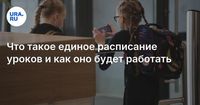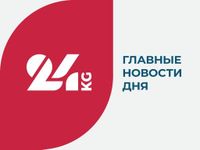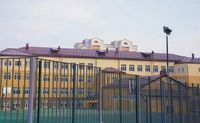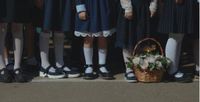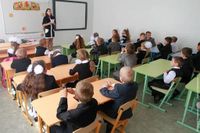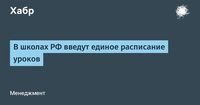In a significant move aimed at standardizing education across the country, the Russian Ministry of Education has announced the introduction of a unified lesson schedule in all Russian schools. Minister Sergei Kravtsov revealed this initiative to the media, stating that it is in its final stages of development. "Work on a unified lesson schedule for schools is nearing completion," Kravtsov said, emphasizing the necessity for clarity in educational planning.
The implementation of this standardized schedule is expected to provide a clearer understanding of teachers' workloads, detailing how many lessons they conduct and the number of students they serve. This initiative is not only about organization but also about ensuring a more equitable distribution of educational resources.
Starting September 1, 2025, the unified planning system for school subjects will be operational. Kravtsov highlighted that this uniform approach will help in tracking the volume of workload on teachers. It aims to alleviate the pressure on educators and ensure that they are not overwhelmed by excessive teaching duties.
In addition to the lesson scheduling, the ministry has set a norm for the number of control and verification works, including nationwide assessments. These assessments will be capped at no more than 10 percent of the total lessons in the academic program. This regulation is intended to prevent over-testing and to focus more on actual teaching and learning.
Lyudmila Lagunova, Deputy Director of the Institute of Content and Teaching Methods, pointed out that the unified schedule also serves an important purpose for students. She noted that it would facilitate smoother transitions for students moving between different educational institutions. With a common schedule in place, students will face fewer discrepancies in their education, particularly in subjects like biology, where previously there had been numerous program variations.
The introduction of this unified lesson schedule comes at a time when educational consistency is increasingly recognized as vital for student success. The initiative has been met with a mix of anticipation and skepticism from educators and parents alike. Many see it as a necessary step towards modernization and efficiency in the Russian education system.
As schools prepare for this transition, training and resources will be crucial in ensuring that teachers are equipped to adapt to the new system. The ministry has committed to providing support and guidance during this period of change.
Furthermore, the initiative aligns with broader educational reforms aimed at improving the quality of education in Russia. By establishing clear guidelines and expectations, the ministry hopes to foster an environment where both students and teachers can thrive.
In conclusion, the unified lesson schedule represents a pivotal change in the Russian educational landscape. As the country moves forward with this initiative, the focus will remain on enhancing the learning experience for students while supporting teachers in their vital roles. The success of this program will depend on effective implementation and ongoing evaluation to ensure it meets the needs of all stakeholders involved.
